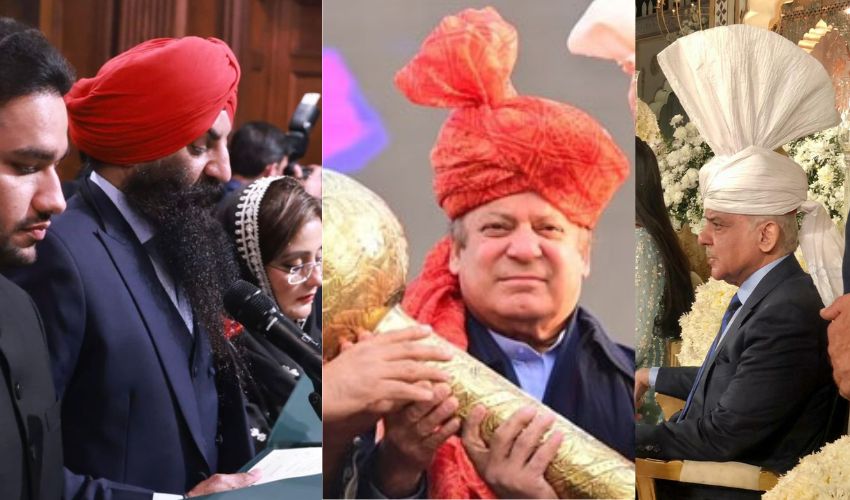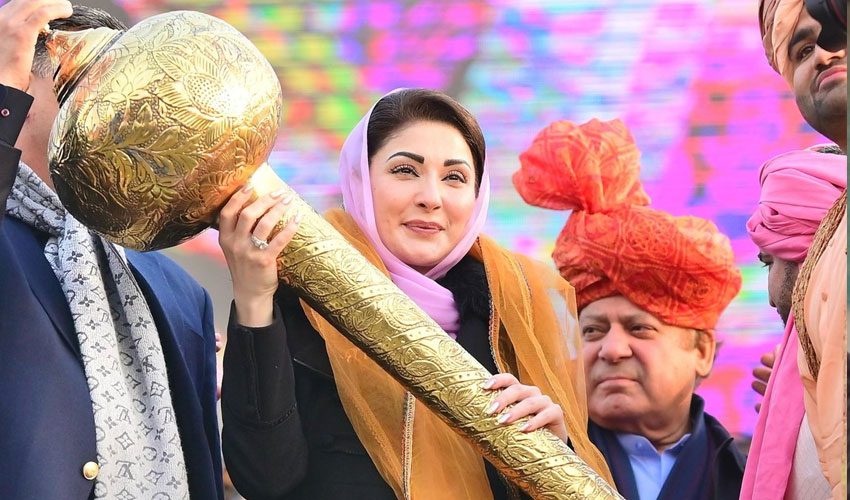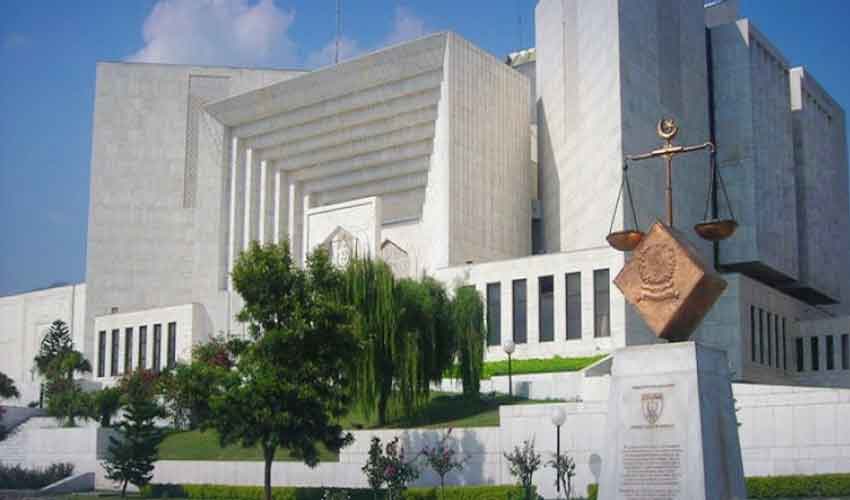In an important announcement to address and settle the decades old debate in country’s largest province, Punjab Chief Minister Maryam Nawaz has vowed to introduce Punjabi language as a subject in schools.
She expressed gratitude to the people of Punjab for entrusting her with the position of chief minister. Maryam said Punjab CM honour bestowed respect upon her as their sister and daughter and congratulated the Punjabi community on her election, marking a historic moment for Indian and Pakistani Punjab.
Maryam Nawaz Sharif was addressing a ceremony held at Alhamra Hall for Punjab Culture Day wherein she emphasised the resilience of Punjabi women, highlighting their role as pillars of strength within their families and encouraged parents to teach their children the Punjabi language and pledged support for the revival of Punjabi cinema.
First female chief minister urged to preserve Punjabi culture to safeguard the language's heritage and advocated for Punjabi cultural celebrations at all levels of education and underscored the need to promote linguistic pride among Punjabis.
She asked people to take pride in association with the Punjabi language and urged parents to encourage a sense of cultural association in their children to prevent the language from further fading.
Must Read:
Punjabi singer Shubh's India tour cancelled amid row over distorted India map
India against music? Canada based Punjabi singer Shubhneet Singh’s concert cancelled
Babar Azam flaunts his Punjabi with Sikh fan, video goes viral on X
Maryam Nawaz Sharif renewed her resolve to work for renewal of Punjabi cinema and acknowledged contribution of renowned Punjabi poets and literary people across the border including Amrita Pritam. Amrita Pritam is known for her couple on partition riots — Aj akha waris shah nu.
Punjabi language facts
Punjabi language is the mother tongue of millions of people of Punjabis but it is not being taught to schools contrary to other provinces where Sindhi, Pashto, Balochi are being taught or promoted at primary level as a tool of mother tongue for school-going children for better nourishment and foundation. According to legend, mother tongue allows children a freedom to express their inner thoughts and ability to say express their abilities and ideas on different issues with greater confidence.
Punjab language is one of the most widely spoken native languages in the world with rough estimates of 113 million native speakers globally. In Pakistan, Punjabi is written using the Shahmukhi alphabet — based on the Perso-Arabic script while in Indian Punjab, it is written using the Gurmukhi alphabet — based on the Indic scripts.
As per Pakistan census 2017, there are 80,540,000 people who could speak Punjabi language making it the 38.78 percent of total population 207 million.
Article 251 of the Constitution of Pakistan declares that these two languages would be the only official languages at the national level, while provincial governments would be allowed to make provisions for the use of other languages.
Author and critic Mushtaaq Soofi talking to SAMAA Digital termed the announcement as positive development.
He argued: “It matters when political parties’ show their resolve and prioritize their resolve to solve the neglected issues of people. Newly elected CM Maryam Nawaz’s announcement to introduce Punjabi as subject in the primary schools should be hailed as there is a possibility implement in real terms the mother-tongue debate — a longstanding demand of Punjabi intelligentsia.”
Soofi said the mother tongue as means of education hould be treated in two aspect i.e Constitutional aspect and societal aspect.
“There is a legal value of this issue. Pakistan’s Constitutional allows province to declare state language in province. For example, Sindhi was declared official language in 1972. Initially partially and latterly in full terms.
“In terms of social aspect, Punjabi language have long been systematically neglected from the sources of income such as jobs opportunity and education. When ruling elite and poetical bigwigs endorse language — in this case Punjabi language — then it will have the greater significance to convince Punjabis to speak language.
“Province of 120 million population needs state funded resources to patronize implementation of mother tongue in schools, colleges and Universities,” the book author who writes columns in mainstream newspaper said.
“Punjabis themselves need to come up and save the language,” Soofi emphasized.

Sharing the historical aspect of neglect against Punjabi language during the British India, he said that after British took over India, they ensure that jobs associated with the English and Urdu.
“Urdu is our national language. But we cannot ruled out the importance of the native languages,” he added.
As per a research study titled ‘The Status of Punjabi Language In The Province Of Punjab, Pakistan’ in the Dialogue, “The Punjabi linguistic community has the largest population in the country with its majority concentrated in the province of Punjab.”
The research study concluded: “Punjabi speakers have started believing that the people who use Punjabi language are illiterate and belong to rural areas. Thus, under the influence of Urdu and English, the use of Punjabi is on decline which may ultimately lead to a situation of language shift. The Punjabi native speakers hold quite negative attitude towards their mother tongue as they feel the least need to maintain and preserve their language. The only motivation to preserve their language was created because of the rich mystic and romantic tradition of Punjabi literature. The respondents expressed serious doubts as to the future of Punjabi language and unless the speakers of this language do not take serious initiatives to promote it, its future seems to be in jeopardy.”
Recently, an international Punjabi conference was held presided over by Fakhar Zaman, Chairman World Punjabi Congress, in attendance of international delegates from Canada. Fakhar Zaman said that Punjabi movement will be successful only when the first ever Punjabi University is established in Lahore and that Punjabi is taught at the primary level. Fakhar blamed bureaucracy for blocking the way of establishing Punjabi University and making Punjabi a medium of education at primary level. The conference was held at Dyal Singh Library organized a two-day International Punjabi Conference on Culture.
Dr. Ajaib Singh Chatha, from Canada, presented his book on alphabets of Punjabi in Urdu & English. Dr. Nabeela Omer Head of Punjabi Department University of Punjab said that she is having day by day more candidates for M.A. Punjabi. Dr. Shahista Nuzhat praised the efforts of Fakhar Zaman, whom she said, was the basic influence on Punjabi.
Prof. Sarfraz Shahid said that he will keep on holding conferences and that he is very pleased with the fact that World Punjabi Congress is organizing 33rd International Conference on the heroic tradition of the Punjab in every March.



























